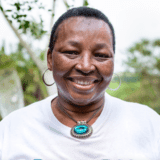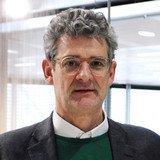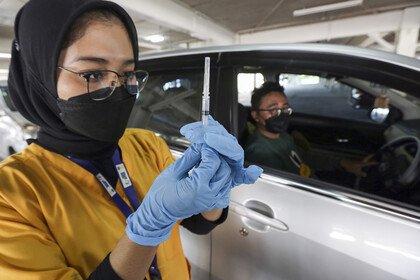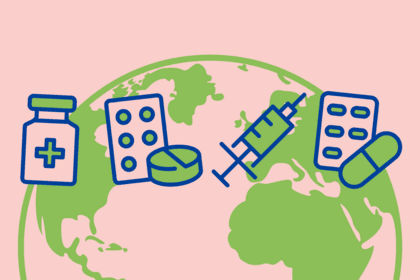
The world’s first tuberculosis vaccine in 100 years could be in sight
The world needs a new vaccine to fight tuberculosis (TB). A new multimillion-pound global study funded by Wellcome and the Bill & Melinda Gates Foundation could provide a solution.
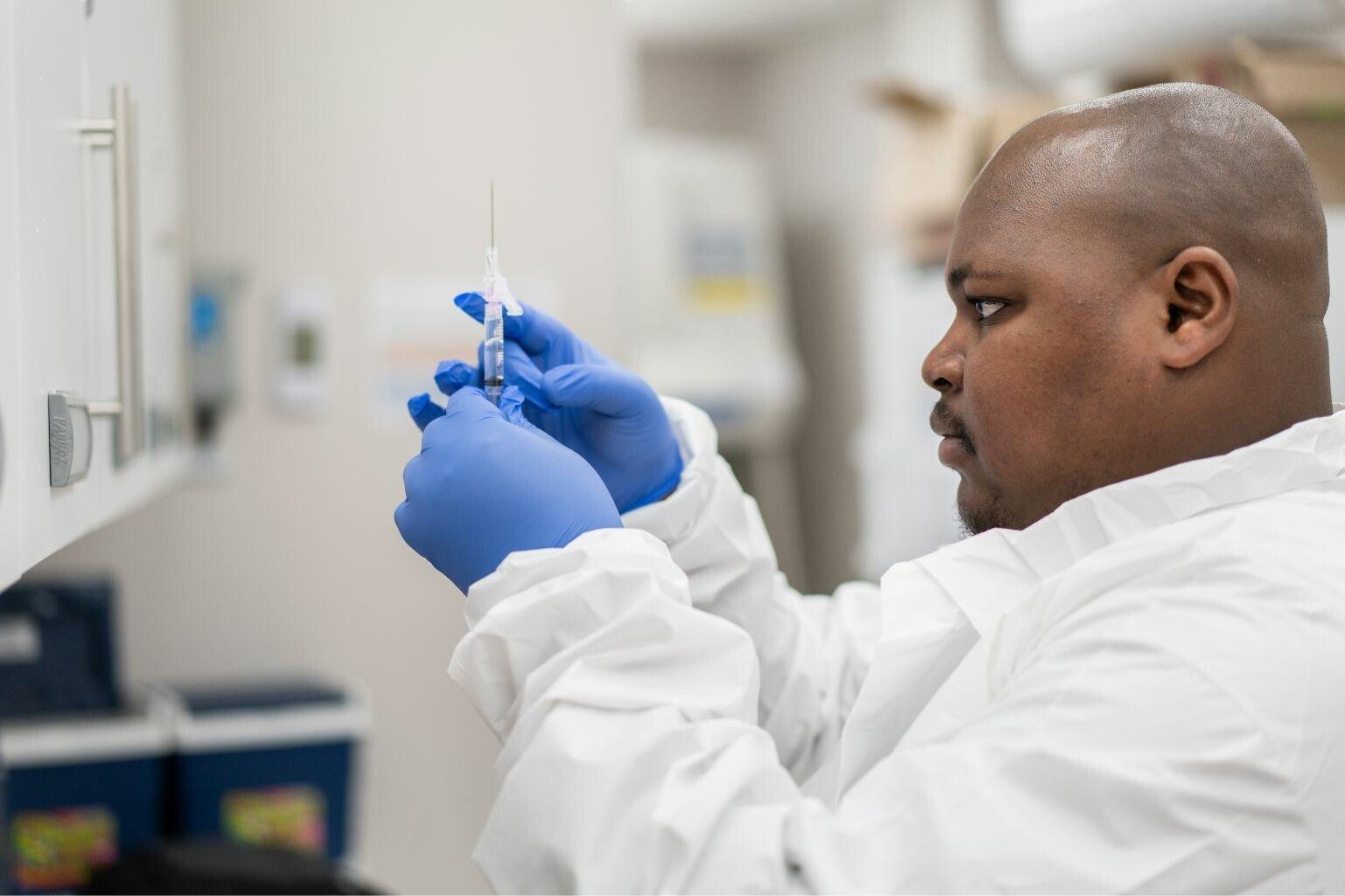
Medication being prepared at Africa Health Research Institute (AHRI) in Somkhele, South Africa.
Patrick Shepherd / Wellcome Trust
Tuberculosis remains one of the biggest threats to global health today. Despite efforts to control the disease in recent decades, it claimed 1.3 million lives in 2022, with over 10 million people falling ill.
This is in part due to a lack of effective tools to fight the disease, such as tests and vaccines, and is an example of a global system of research and development that fails to meet demand.
Now, a late-phase clinical trial funded by Wellcome and the Bill & Melinda Gates Foundation seeks to advance a candidate vaccine – M72/AS01E (M72) – in communities most affected, with the potential to become the world’s first new tuberculosis vaccine in over a century if effective.
The urgent need for a new tuberculosis vaccine
Despite the need for innovation, progress to develop better prevention, diagnosis and treatment options for tuberculosis has been slow.
Vaccine development has been particularly stagnant, with only one approved, the Bacille Calmette-Guérin (BCG) vaccine, which was developed over 100 years ago. While it protects young children against the most severe forms of tuberculosis, the BCG vaccine has its limitations and offers very little protection against pulmonary tuberculosis (TB of the lungs) for adolescents and adults – which accounts for most cases and transmission.
There have been some advances, including safer, shorter and more effective drug regimens and improved diagnostics, but a lack of political will and financial investment remains a barrier to innovation. And global investment still falls well short of the estimated US$5 billion per year needed to end tuberculosis by 2030, including at least US$1.25 billion per year for vaccine research.
Moreover, access to treatment is still a major challenge in low- and middle-income countries – which account for 80% of cases – due to challenges with health care delivery and affordability of new diagnostics and drugs.
This, combined with the impact of the Covid-19 pandemic and the rise of multidrug-resistant tuberculosis, has made the need for new and improved tools to protect against the disease more urgent than ever.
Funding the next generation of tuberculosis vaccine
Wellcome and the Bill & Melinda Gates Foundation have partnered to advance tuberculosis vaccine innovation while shifting the focus of research toward affected communities.
Together, they will fund a Phase 3 clinical trial testing the safety and efficacy of the M72 vaccine in countries with high rates of tuberculosis in Indonesia, Kenya, Malawi, Mozambique, South Africa, Vietnam and Zambia, sponsored by the Bill & Melinda Gates Medical Research Institute (GMRI).
To support the trial, which will cost an estimated US$550 million, Wellcome is providing up to US$150 million and the Bill & Melinda Gates Foundation will fund the remainder, about US$400 million.
People with and without latent tuberculosis will be included in the trial, as well as those living with HIV, for whom tuberculosis is a leading cause of death.
Initially developed by GSK, M72 has demonstrated its potential to reduce the risk of active pulmonary tuberculosis in adolescents and adults in early clinical trials, including in people living with HIV.
Affected communities will be at the centre of the project, and partners will work closely with community advisory boards, local regulators and the World Health Organization to align on the trial design and ensure equitable and efficient access to the vaccine where it’s needed.
If proven safe and effective in the Phase 3 trial, M72 could become the world's first vaccine to protect adolescents and adults from pulmonary tuberculosis, the impact of which would be life-changing for communities burdened by the disease.
“Despite being curable, TB remains one of the leading causes of death in South Africa... M72 offers us new hope for a TB-free future.”
What’s next for the M72 vaccine?
The trial began in March 2024 with the first patient receiving the first vaccination. Altogether, the trial will enrol 20,000 people (revised from 26,000) at up to 60 sites in Africa and South East Asia.
Participants will be given either the M72 vaccine or a placebo in what is known as a double-blind trial. In this type of trial, neither the participant nor the clinical investigators know who receives the vaccine or the placebo. This approach is considered best practice for evaluating the safety and efficacy of a potential vaccine.
The trial is expected to take up to five years to complete. Then data will then be analysed and submitted to regulatory authorities.
If found to be effective at Phase 3, M72 could be a transformative tool in the global fight against tuberculosis. But, its success alone cannot eradicate the disease.
Countries will need to use it alongside new and existing strategies, including effective diagnostics and drug regimens, to reduce the burden of tuberculosis. And in the meantime, access to other newer tools must be scaled up in line with World Health Organization guidance, including shorter and more effective treatment regimens, including preventative regimens.
Long-term solutions for tuberculosis require political commitment, sustained global partnerships, and continued investment in tuberculosis research and innovation. This includes expanding the pipeline of effective drug regimens, improving diagnostics and developing next-generation vaccines.
While new funding is a step in the right direction, the road ahead is long. Achieving meaningful change needs global and equitable collaboration.
“If successful, this trial could be a game changer for controlling the disease, and the M72 vaccine could be the first new safe and effective TB vaccine in over a century, a valuable addition to our toolkit to protect those at risk.
Philanthropy for vaccine trials and TB innovation will take us a step closer to this goal, but to achieve a TB-free world will require significant global investment.”
